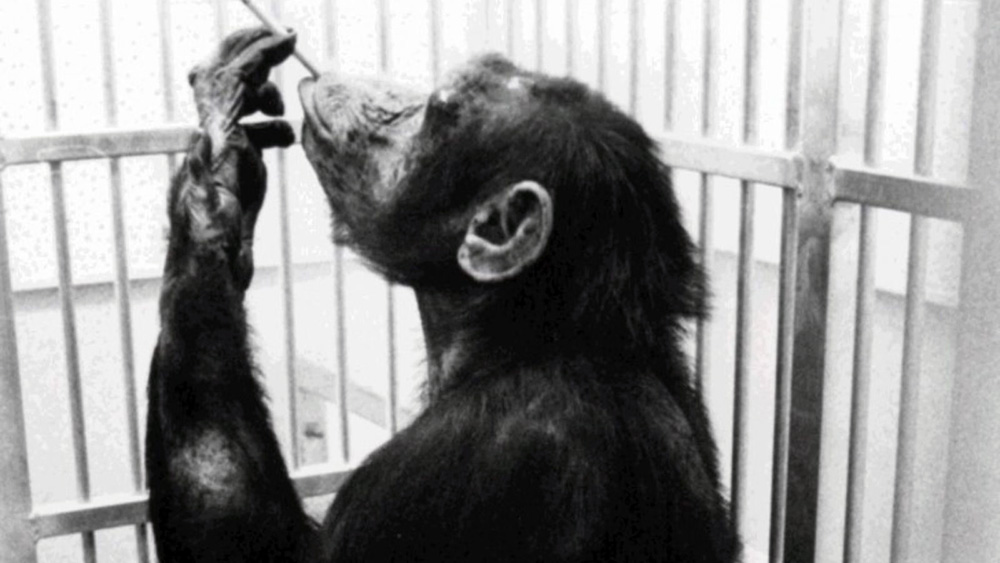In Fredrick Wiseman’s 1974 documentary, Primate, a group of scientists sit around a table discussing the point of their research. “You can’t always look for the applied value of research”, says one of them. “This will benefit society in the long term . . . All research is useful.”
Wiseman’s unflinching film takes us through a range of experiments on nonhuman primates, some surprising and comedic and others breathtakingly horrific. The site of the film is the Yerkes National Primate Research Center in Atlanta, Georgia, renamed the Emory National Primate Research Center as of 2022 due to its founder Robert Yerkes’s past endorsement of eugenics. It is the oldest of seven primate research centers funded by the National Institutes of Health.
The meat of Wiseman’s film, which helped spark protests against the center and its activities upon its release, is a quiet observation of experiments that are tantamount to torture. The film begins with a doctor, pipe in hand, discussing mating. He stands in front of a photo of one ape behind another. “This is the most common position,” he dryly observes. He goes on to explain that gorillas aren’t nearly as “sexy” as chimps. This scene, almost indistinguishable from a film by Albert Brooks or Christopher Guest, quickly gives way to a litany of atrocities. Primates are stimulated with electric shocks to copulate and ejaculate, artificially inseminated, and placed in centrifuges for g-force testing.
In what is perhaps the film’s most violent and unsettling moment, a small monkey is weighed and placed on a steel table. Its abdomen is quickly and roughly cut open. In closeup, the heart still pumps in its spread-chest cavity before it is punctured, spurting blood. We see the creature's lifeless eyes. “I’m going to remove the brain right away,” says the doctor. The skull is broken open like an entree at a seafood restaurant, and the tiny brain is dropped in a jar. The brain is then set in a vice-like contraption with the monkey's face still attached. Tiny, flat sheets of the brain are removed and placed on glass slides and finally under a microscope. As one of the scientists examines the slide he remarks, “That is beautiful.”
While scenes of scientists flying in zero gravity and a doctor cradling a monkey in a rocking chair give a human face to the documentary and lend it moments of less chilling absurdity, in the end, these images only serve to reinforce the madness at the film’s core. As of January 2023, the FDA no longer requires that all drugs be tested on animals before beginning human trials, but this is only part of the picture. The activities at Emory National Primate Research Center are a continuing reality, not just a nightmare from the past: In 2020 the center used 1,485 nonhuman primates in experiments, according to PETA. The center still continues to conduct experiments on addiction and the effects of psychological distress on primates, and—with Emory University as one of the top recipients of federal research funding—your tax dollars are helping.
Primate screens tonight, May 11, in 16mm at Film at Lincoln Center as part of “The World of Apichatpong Weerasethakul.”


